Yoga for Beginners: Complete Guide (FREE eBook)
Yoga is an ancient practice that originated in India thousands of years ago. It involves a combination of physical postures, breathing exercises, and meditation techniques to promote overall health and well-being.
Yoga has gained immense popularity worldwide due to its numerous benefits for the mind, body, and spirit. Let’s dive in!
Busy? Save this pin for later.

Benefits of Yoga for Beginners
Yoga offers a wide range of benefits, making it an ideal choice for beginners who are looking to improve their physical and mental health. Some of the key benefits of practicing yoga include:

Improved Flexibility
Yoga helps improve flexibility by stretching and lengthening muscles, allowing for greater range of motion. This can be particularly beneficial for beginners who may have tight muscles from a sedentary lifestyle. Regular practice of yoga can gradually increase flexibility and make daily movements easier.

Increased Strength
Many yoga poses require holding and supporting your body weight, which helps build strength, especially in the core, arms, and legs. This can improve overall physical fitness and stability. As beginners progress in their practice, they can explore more challenging poses to continue building strength.
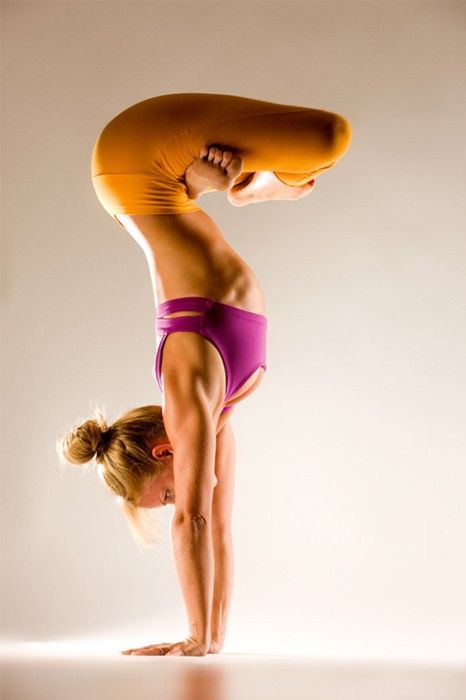
Stress Relief
Yoga incorporates deep breathing and relaxation techniques that can help reduce stress and promote a sense of calmness. This can be particularly beneficial for beginners who may be dealing with high levels of stress or anxiety. By focusing on the breath and being present in the moment, yoga can help quiet the mind and provide a much-needed break from daily stressors.

Better Posture
Regular practice of yoga can help improve posture by strengthening the muscles that support the spine. This can alleviate back and neck pain caused by poor posture. Yoga poses such as Mountain Pose and Cobra Pose can help align the spine and improve overall posture awareness.

You Might Also Like: 50 Inspirational Life Quotes to Brighten Your Day
Enhanced Mind-Body Connection
Yoga encourages mindfulness and teaches you to be present in the moment. It helps foster a stronger mind-body connection, allowing you to become more aware of your body and its needs.
By practicing yoga, beginners can develop a deeper understanding of how their body moves and functions, leading to a greater sense of self-awareness.

Improved Sleep Quality
The relaxation techniques practiced in yoga can help calm the mind and promote better sleep. This can be especially beneficial for beginners who struggle with insomnia or disrupted sleep patterns. Incorporating a short bedtime yoga routine that focuses on relaxation and gentle stretching can help prepare the body for a restful night’s sleep.

Boosted Energy Levels
Yoga helps increase blood circulation and oxygen flow throughout the body, which can leave you feeling more energized and revitalized. This can be particularly beneficial for beginners who often feel fatigued or lethargic. Regular yoga practice can help improve overall energy levels and combat feelings of sluggishness.

Weight Management
Regular yoga practice can be an effective tool for weight management. It helps increase metabolism, build lean muscle mass, and promote healthy eating habits, which can contribute to weight loss or maintenance.
Additionally, yoga can help cultivate a positive body image and a healthy relationship with food, leading to long-term sustainable weight management.
You Might Also Like: Expert Hacks for a Refreshing and Inviting Home
Getting Started with Yoga for Beginners
If you’re new to yoga, it’s essential to start with the basics and gradually build your practice. Here are some tips to help you get started on your yoga journey:
Download FREE eBook
1. Find a Qualified Instructor
To ensure that you receive proper guidance and avoid injuries, it’s advisable to find a qualified yoga instructor. Look for someone who has experience teaching beginners and can provide modifications for different fitness levels.

A qualified instructor can help you understand the correct alignment in poses and guide you through a safe and effective practice.
2. Choose a Suitable Yoga Style
There are various yoga styles to choose from, including Hatha, Vinyasa, Ashtanga, and Restorative yoga. Consider your fitness level, goals, and preferences when selecting a style that best suits you as a beginner.

Hatha yoga, known for its gentle pace and focus on foundational poses, is often recommended for beginners. However, exploring different styles can help you find what resonates with you the most.
3. Start Slow and Gradual
As a beginner, it’s important to start slowly and gradually increase the intensity and duration of your practice. Pushing yourself too hard in the beginning can lead to muscle soreness or even injury.

Listen to your body and take breaks when needed. Begin with shorter sessions and gradually build up to longer practices as your body becomes more accustomed to the movements and postures.
4. Practice Regularly
Consistency is key when it comes to yoga. Aim to practice at least three times a week to experience the maximum benefits. Even short sessions of 15-20 minutes can be beneficial if done regularly.
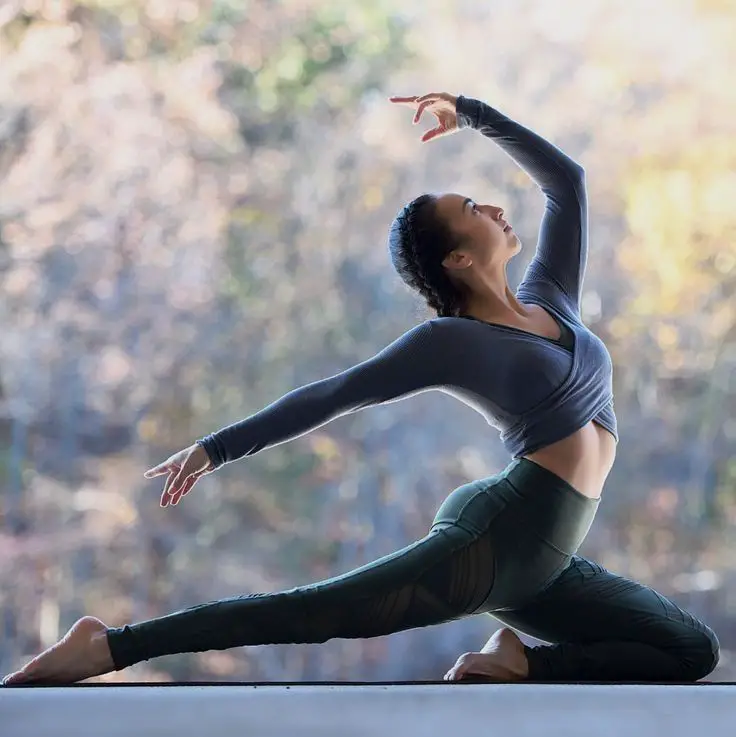
Find a routine that works for you and make it a priority to set aside dedicated time for your yoga practice. Consider integrating yoga into your daily schedule by creating a specific time and space for your practice.
You Might Also Like: Transform Your Outdoor Space with These Insider Tricks
5. Set Realistic Goals
Set realistic goals that align with your current fitness level and lifestyle. Remember, yoga is a journey, and progress may be slow at times.

Celebrate small achievements along the way and be patient with yourself. Instead of focusing solely on achieving specific poses, focus on the process and the positive changes you experience in your body and mind.
6. Create a Safe Environment
Ensure that you have a quiet and clutter-free space to practice yoga. Invest in a good-quality yoga mat to provide support and stability during your practice. Avoid practicing on a hard floor or uneven surface to prevent injuries.
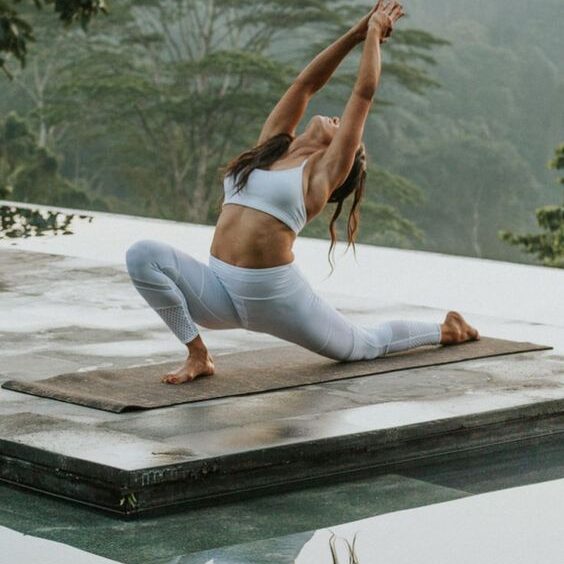
Create an ambiance that promotes relaxation and tranquility by dimming the lights, playing soft music, or using essential oils to enhance the atmosphere.
7. Listen to Your Body
One of the fundamental principles of yoga is to listen to your body’s needs. Respect your limitations and avoid pushing yourself too hard. If a pose feels uncomfortable or causes pain, modify it or skip it altogether.

Yoga is a practice of self-care and self-compassion, so honor your body’s signals and practice in a way that feels safe and comfortable for you.
You Might Also Like: 10 DIY Home Decor Ideas That Will Transform Your Space
8. Focus on Breath Awareness
Breathing plays a crucial role in yoga. Pay attention to your breath throughout the practice, aiming for slow, deep breaths. This helps calm the mind, increase oxygen intake, and enhance the overall experience.
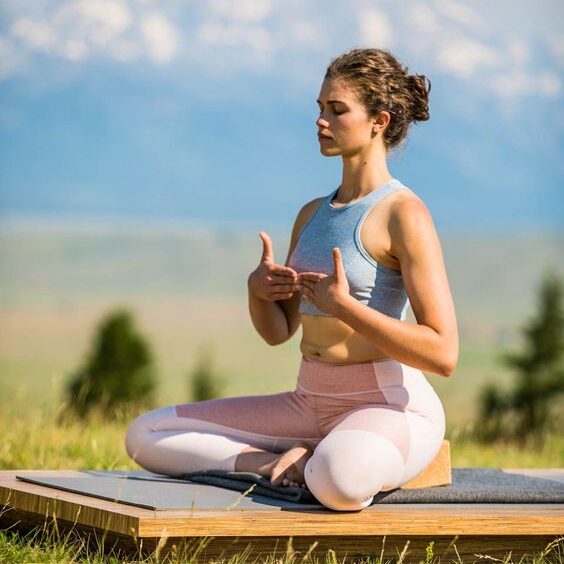
Focus on the sensation of the breath moving in and out of your body, and let it guide your movements and transitions between poses.
9. Don’t Compare Yourself to Others
Yoga is a personal journey, and everyone’s body is different. Avoid comparing yourself to others in your yoga class or on social media. Focus on your own progress and embrace the unique aspects of your practice.
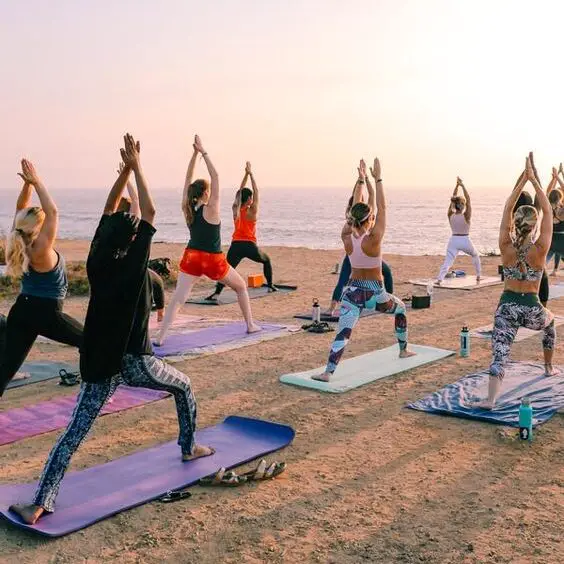
Remember that yoga is not about achieving perfection in poses, but rather about connecting with yourself and finding inner peace and balance.
10. Be Mindful Off the Mat
Yoga is not just a physical practice; it’s a way of life. Take the principles and mindfulness cultivated during your yoga practice off the mat and incorporate them into your daily life.
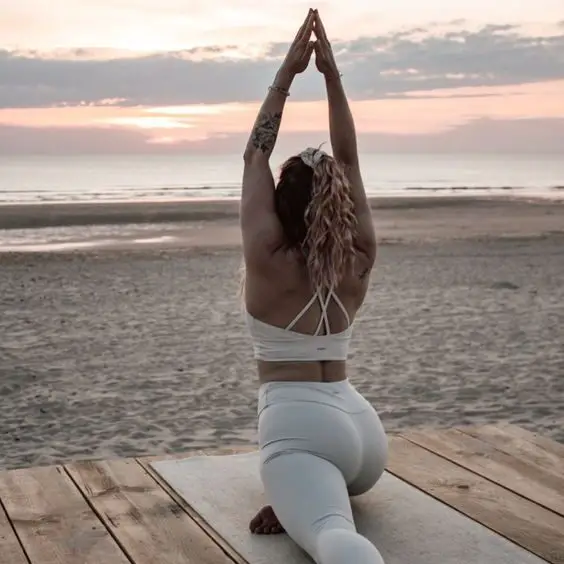
This can help you experience greater overall well-being. Practice mindfulness in daily activities such as eating, walking, and interacting with others. Cultivate a sense of gratitude and compassion towards yourself and others.
In conclusion, yoga is a wonderful practice for beginners who are looking to improve their physical fitness, mental health, and overall well-being. By starting slowly, finding a qualified instructor, and practicing regularly, you can embark on a fulfilling journey of mind-body wellness through yoga.
Download FREE eBook
Remember to listen to your body, set realistic goals, and enjoy the process as you discover the transformative power of yoga.
You Might Also Like: 9 Art of Mindful Parenting: Nurturing Connection with Your Children
FAQ
1. What are the benefits of practicing yoga for beginners?
- Improved flexibility
- Increased strength
- Stress relief
- Better posture
2. How can beginners get started with yoga?
- Find a qualified instructor
- Choose a suitable yoga style
- Start slow and gradual
- Practice regularly
3. What should beginners keep in mind during their yoga practice?
- Listen to your body
- Set realistic goals
- Create a safe environment
- Focus on breath awareness
4. How can beginners incorporate yoga into their daily lives?
- Be mindful off the mat
- Practice mindfulness in daily activities
- Cultivate gratitude and compassion



